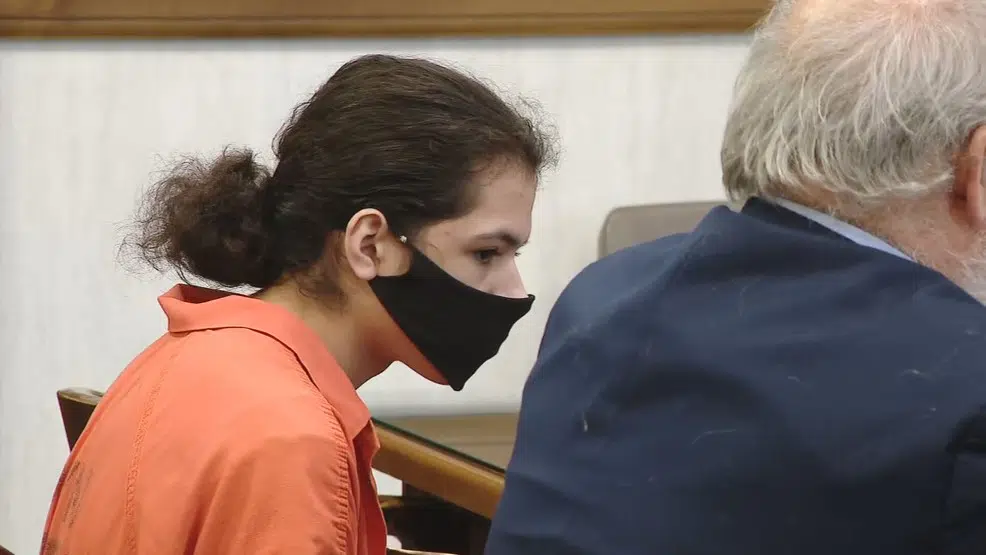GREEN BAY, WI (WTAQ-WLUK) – After over two months and multiple delays, a judge has decided that the teen charged in a Green Bay murder will remain in adult court despite his request to move the case to juvenile court.
Jeremiah Robinson, then 15, allegedly shot and killed a man outside of the Walgreens on the corner of Oneida and Mason Streets on Feb. 18.
According to the criminal complaint, Robinson and another man, Jeromy Finke, got into a confrontation with the victim and another man over money during a drug deal. Robinson told police he shot the victim in self-defense after being threatened with brass knuckles. Police have not named the 31-year-old victim, who was shot four times.
In Wisconsin, those between 10 and 16 years and charged with homicide are prosecuted in adult court. However, attorneys can petition for a reverse waiver hearing in an attempt to move the case to juvenile court. Those requests must be approved by a judge.
But Judge Thomas Walsh denied that motion Friday, saying Robinson’s attorney Michael Balskus had not showed evidence to fulfill the three facets of statue 970.032 subsection two:
If convicted in adult court, the juvenile wouldn’t be able to receive adequate treatment in the criminal justice system.
Transferring jurisdiction to juvenile court would not “depreciate the seriousness of the offense.”
Remaining in adult court is not necessary to deter the juvenile or over juveniles from committing the same crime.
Despite Balskus’ argument that moving the case to juvenile court would not “depreciate the seriousness of the offense,” Walsh ultimately denied the motion.
He said that first-degree intentional homicide — the charge Robinson faces — is Wisconsin’s most severe crime.
“If you can send that offense to the juvenile justice system and it doesn’t depreciate the seriousness of the offense, really what is the offense you couldn’t send under that factor?” questioned Walsh.
He continued, saying that sending the case to juvenile court would be “problematic” and would depreciate the seriousness of the crime.
Walsh also said that retaining the case would help deter other juveniles from committing the same crime.
While Walsh said he was not predicting the outcome of the trial by any means, he also pointed out that if convicted, Robinson would not necessarily be sent to adult prison — instead, he would likely begin at Lincoln Hills and transfer into the adult system when he turned 18.
The 16-year-old will return to court for a status hearing on Jan. 31. He is being held on a $1 million cash bond.




Comments